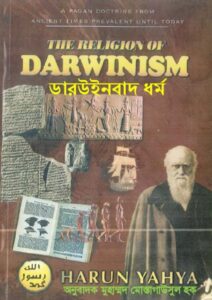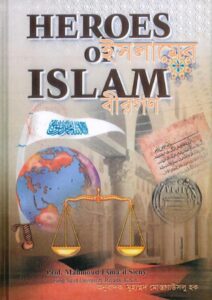
Prime Minister Sheikh Hasina in a recent speech on the occasion of the inauguration of the annual convention of the Institute of Engineers of Bangladesh declared her government’s changed vision that the substantial reserve of high heating value, low ash, bituminous coal resource will be preserved for the future generations. This statement is a clear contradiction of the election pledge of the Awami League where it clearly promised to mine our own coal addressing all impacts of coal mining in the greater national interest The. PM said Bangladesh would rather rely on imported coal to fuel its immediate power generation need. The PM said this despite of continued urging of her own party MPs, Ministers, Energy Economists and line professionals about mining our own coal to fuel power generation. The PM’s statement pleased only a marginal group of activists who demand: “No foreign company”, “No open pit mining” and “No export of country’s energy resources”.
Bangladesh does not have the military might of the USA to aggressively control foreign oil resources of different countries. Bangladesh does not have wealth like China, Japan, Korea, and the USA to enter volatile global energy market to buy coal, liquefied natural gas (LNG) or oil. Bangladesh also does not have required technology or resources to mine its own coal, explore and exploit its own petroleum resources. In view of above the PM’s statement of her government’s vision and unrealistic arguments of an identified anti-development group require thoughtful analysis and review.
Bangladesh government in the recent past inked three agreements with Orion Group, a local company which is inexperienced in the power sector, for setting up of imported coal-based power plants. Only the other day BPDB and NTPC inked an agreement for setting up a major 1320 MW imported coal-based power plant at Rampal, Bagerhat in the proximity of Sundarbans mangrove forest, a World Heritage. We all know that Indian coal minister is moving heaven and earth for sourcing coal to feed India’s own coal-fired power plants. It is very interesting to note that while India cannot get guarantee for assured supply of coal for its own coal-fired power generation it allied with Bangladesh for setting up imported coal-based power plants.
Sourcing coal at affordable price and transportation and storage are major problems. PDB Chairman talking to media informed that some homework have been done for sourcing coal and transportation. According to him, coal may be sourced from Indonesia, Australia or South Africa. He however refrained to comment on quality of coal and the price. He did not go into detail on transportation and storing arrangements of a huge amount of coal that will be required to be supplied on a continual basis for such a large power plant. We all know that Mongla port has a bare minimum all-season draft of about 4 metres. This will make plying of the smallest coal carriers impossible unless the port channel is continuously dredged to maintain all season navigability. Coal import terminals require stringent environmental control. Having visited such export terminals at New South Wales and Queensland, this writer feels that setting up enabling port facilities for import of coal for Rampal Power plant will not only be very expensive but also pose a serious challenge. Setting up of a coal-fired power plant so close to Sundarbans will itself create huge environmental impacts. This writer also visited some major modern coal-fired power plants in Queensland, Australia. Little experienced persons talk about clean coal technology, zero emission, etc. Both the concepts are still very far from achieving their declared vision. In coal fired power generation there will be some emissions and these emissions will definitely impact upon the Sundarbans. At least one should understand that zero or clean coal-fired power plants are several times costlier to install and operate. Obviously, these costs will be reflected on the unit cost of electricity generated.
Also, it is a major decision to make whether Bangladesh can opt for expensive power plants with almost no experience in this sector. We must not forget that Sundarbans, like the loving mother of Bangladesh, absorbs impacts of cyclones, tidal surges, and tsunami. Bangladesh could be wiped out by Sidr if Sundarbans did not absorb most of its impact. Now we are injudiciously exposing Sundarbans to major environmental degradation. Some leading citizens of Bangladesh have already voiced their concern. We hope the government will reverse its plan and not continue with a self-destructive, unrealistic vision. Challenges to mining our own coal cannot be greater than importing coal and setting up imported coal-based power plants near a World Heritage site.
Credible economic analysis: Has anyone done credible economic analysis on imported coal-based power generation? Has there been any comparative analysis with power from our own coal at mine mouth? Bangladesh claims to possess top notch economists and financial analysts. Some government advisors are Ivy League development economists. We can guarantee that imported coal-based power plants cannot produce cheaper power than that of our own coal, considering management of environmental and social impacts of mining our own coal. The concept of zero-emission and clean coal technology is also a pipedream. Coal can never be cleaned completely, clean coal technology is still not proven. Carbon capture and burying it safely have not attained full proof success yet.
We know that world is getting increasingly concerned about global warming from ‘green house gases’ (GHG) emissions. Coal and oil are major culprits of GHG emissions and global warming. Keeping present generation energy-hungry or burdening them with expensive power, what message is the PM giving to the nation through preserving resources for future generation? Resource becomes resource when it is explored and put to use. We think policymakers either panicked the PM about unnecessary concerns about mining our own coal or this has been done under the influence of coal mafia syndicate.
Our activists find no environmental issues when dirty polluting coal from neighbouring country seriously pollutes environment. Their concern is about mining our own coal. Bangladesh on its own cannot mine coal in another 20 years. None in Bangladesh can plan, engineer or implement coal mining. Our higher educational institutions have yet to tackle ‘mining’ as a discipline and mining science is a subject that cannot be solved by talking big in TV talk-shows. Bangladeshis need serious education on mining and hands-on training in mining activities for years to achieve professional excellence of mining our own coal. That may not happen in 15 years at least. Bangladesh cannot wait untill then to mine our coal. We must engage major mining companies through transparent process to mine our coal.
Geology, Geophysics, Rock Mechanics, Soil Condition, Coal Characteristics, etc. — all mining economics will dictate mining method. The government must not be misguided by the ill-conceived slogans of activists: “No open pit mining”. It is through open-pit mining about 90 per cent coal in place can be recovered. It is through open-pit mining, all other minerals that are usually found in coal mines can be recovered; it is only though open-pit mining about 80 per cent of the mined areas can be rehabilitated to original or better state than before mining. Persons may visit Germany, Australia and other open-pit mining areas to see for themselves how open-pit mining has significantly improved life and living of the mining community. Open-pit mining will not cause desertification. Pumped-out water can be professionally reused to ensure pure drinking water supply for the mining community, use for all-season irrigation in mine command zone and part can be pumped back to aquifer. Hence all the concerns that may have confused the PM are actually unrealistic.
Other mining methods: Underground mining or underground coal gasification (UCG) causes mine subsidence and underground aquifer contamination. Some persons must have given wrong impression to the PM that in future some technology may be discovered which may extract energy from coal without mining.
Two of our coal mines, Barapukuria and Phulabri, are ideal candidates for open-pit mining. This has been evidenced by extensive studies carried out by accredited international mining consultants. Open-pit mining may also be possible partially at Kailaspeer and Dighipara. Some studies may be conducted on these two mines about UCG. However, UCG technology is still not well proven. Even in Chinchilla, Queensland, Australia it created some issues while world leader of UCG went for it. None can tell without extensive study whether UCG can be applicable for Bangladeshi coal mines. UCG also causes mine subsidence and aquifer contamination. Yes, for the deepest discovered mine at Jamalganj, we may carry out study for Coal Bed Methane (CBM) which BHP Billiton proposed in the early 1990s.
Bangladesh cannot afford the luxury of spending most of its hard-earned foreign exchange in importing fuel for power generation, specially when much better economic option of mining our own coal and relying on it to generate about 20,000 MW mine-mouth power generation is available. Bangladesh can seek assistance of friendly countries like Australia, Germany or even Poland and Russia for mining coal. Bangladesh economy cannot absorb financial impact of fuel imports (LNG and coal).
We hope that the government will soon change its vision about utilisation of our own coal. The energy crisis will aggravate and fuel import cost will burden the economy unbearably if the government does not immediately abandon fuel import initiatives.
The writer is a petroleum engineer & FIEB and can be reached at Email: khondkar.saleque@gmail.com
https://www.thefinancialexpress-bd.com/more.php?news_id=96859&date=2012-02-03
Khondkar Abdus Saleque.









